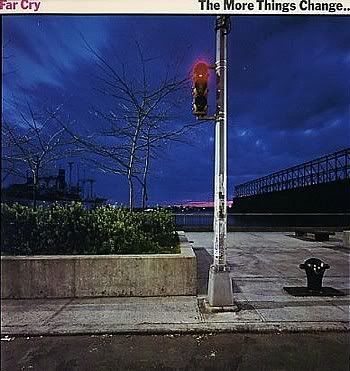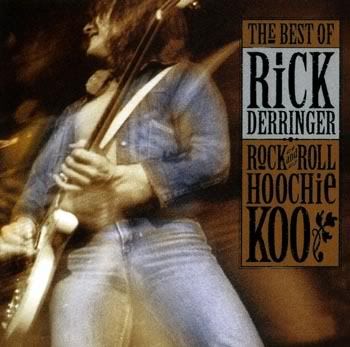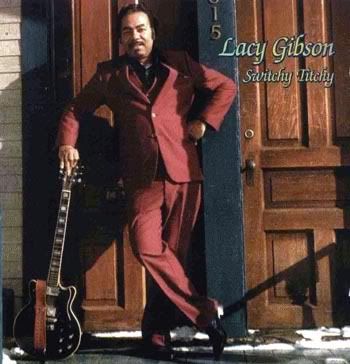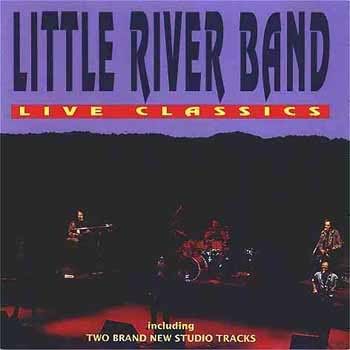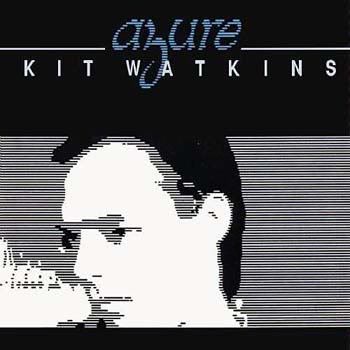
Reneé Austin - Dancin' with Mr. Blue - 1996 - Utr Music Group
Dancin' With Mr. Blue, her great debut CD demonstrates Reneé Austin's six-octave range and she covers everything from house rockers to ballads in a great "roadhouse soul" style. The album was honoured as Best Blues Recording by the Minnesota Music Academy. She also received additional awards for Best Blues Artist and Best Female Vocalist. The album enjoyed airplay throughout the U.S., and news of her electrifying performances began to spread. Unfortunately, Reneé is no longer performing, after an operation for a thyroid problem cut her singing career short. Buy her "Sweet Talk" and "Right About Love" albums.
RENEE AUSTIN'S CAREER CUT SHORT [ taken from www.bluesmatters.com/modules.php?name=News&file=article&sid=1632 ]
It is with a great deal of sadness that Blind Pig Records announces that Renee Austin is ending her burgeoning career as a singer. A paralyzed vocal chord has forced her to abandon her profession. Austin's 2003 national debut CD, Sweet Talk, sparked critical raves and predictions of greatness, with many comparing her to Janis Joplin and Tina Turner. It also led to a "Best New Artist Debut" W.C. Handy nomination and a slot on the PBS-TV film entitled Blues Divas. Her second Blind Pig release, Right About Love, impressed critics with her stunning vocal dynamism, her passion, and her remarkable versatility. Again, many predicted her sassy "roadhouse soul" style of music would soon land her in the mainstream. As Harp magazine put it, "If talent still counts in the music biz, she'll be an established star." Label executive Edward Chmelewski said, "We've been greatly impressed with Renee's immense talent since we first heard her. It's tragic that something like this occurs just as her career was taking off. We really feel for her and wish her the best. Besides being an incredibly gifted artist, she's a wonderful person who's been great to work with." In an open letter to her fans and supporters, Austin broke the heart-rending news, "I want to start by thanking all of my friends, family, fellow musicians, and fans for all the love and support you have given me over the years. As most of you know I released my second CD with Blind Pig Records Right About Love on August 16th. It is a piece of me that I am very proud of and a culmination of lots of hard work from many people. As some of you know I had to have surgery on September 13th to remove a lump on my thyroid gland. I feel blessed to be able to tell you that I am doing fine and the lump turned out to be cancer free. I regret to inform you all that as a result of the surgery my left vocal chord has been left paralyzed and is not working. The result of this is I can talk softly but I cannot sing. In the last couple of weeks after lots of medical opinions and various hospital visits my condition has been diagnosed as likely permanent. This means that I probably will never be able to sing again. I am working hard with a speech therapist to see if I can beat the odds and God willing raise my voice in song once again someday. Until that time comes I must say goodbye to you all as a singer and thank you again for all of the love and support you have given me. I thank God for the opportunities He gave me to live out my dream even if only for small window of time. I trust that He has a plan for my life and whatever that is, I will put my heart and soul into it just as I did my music. From the bottom of my heart - please know I thank all of you for your kindness to me and I will remember it always. May God Bless each of you."
TRACKS
Little Bit a Texas
Calling It Quits
The Accused
One Man
Lonely Road
Pillow
It's All a Game
Catfish Woman
Heartless World
Swing
Dancin' With Mr. Blue
All songs composed by Reneé Austin, except "Lonely Road" by Reneé Austin, & Al Larson
MUSICIANS
Reneé Austin (Vocals) , (Guitars)
James Walsh (Organ), (Piano), (Vocals (Background))
Charles Fletcher (Bass)
Melanie Moos (Vocals (Background))
Kenny Wilson (Guitar)
Catherine Battocletti (Vocals (Background))
REVIEW
You wouldn't ordinarily assume a blues-belting mama to hail from central Texas. Nor would you expect a move to Minneapolis to enhance a devotee's appreciation for greasy, Southern-fried, hip-shaking R&B. But give a listen to Reneé Austin for a lesson in how soulful pipes can effortlessly transcend geography. Born in San Diego, Austin actually grew up in Kingsland, TX. Moving to Minneapolis as a college student, Austin jumped into the thriving live music scene and released her 1996 debut, Dancin' With Mr. Blue, from which "Little Bit A Texas" is drawn. Blues guru Delbert McClinton became a mentor to Austin and the two recorded a duet, a signature event in Austin's musical evolution. With her sophomore effort, Sweet Talk, nominated for a W.C. Handy Award (as "Best New Artist"), Austin is poised to take the next big step into the blues/R&B mainstream. As the result of thyroid gland surgery, Reneé is no longer able to perform. © 2008 Texas Music Project

ABOUT RENEE AUSTIN
"When you first hear her voice - that voice - it makes the skin on the top of your head tingle and your ears take notice that here is something - someone - very special." - Blues Wax. Singer-songwriter Reneé Austin turned quite a few heads with her 2003 national debut on Blind Pig Records, Sweet Talk. Critics marveled at her nearly five-octave range, her stunning vocal dynamism, her poignant and insightful songwriting, and her remarkable versatility, comparing her to Janis Joplin and Tina Turner. Calling the CD "an impressive grab bag of original roots music," Blues Revue said, "Her stunning vocal range grabs the listener from first song to last...The auspicious Sweet Talk is a harbinger of great things to come for this talented and soulful vocalist." With her highly-anticipated follow-up release, Right About Love, Austin validates those early raves and predictions of greatness. Austin offers razor-sharp reinterpretations of American roots music styles and brings them to life with an arsenal of vocal twists - husky and swaggering, breathy and vulnerable, angelic and clear-as-a-bell. A multi-instrumentalist and prolific songwriter, she's been honing her craft since early childhood, and has nurtured her singing voice to astounding, operatic heights. Although Reneé could be most broadly categorized as a blues artist, her sound has been molded by an expanse of influences, and she credits that to her early environment. Born in San Diego, California, Reneé relocated to Texas by the time she was three. Growing up in the small town of Kingsland, Reneé immersed herself in Texas' spirited musical melting pot - one that has helped shape dozens of other seminal artists from the American Southwest. "In Texas, the older, more seasoned artists garner the most respect. So, I learned early on to respect styles by musicians of all ages, makes and models - there's a tremendous reverence for tradition," says Austin. Many critics noted this ability to sashay with ease from one style of music to the next. The Philadelphia Inquirer said Austin "embraces a deliciously wide range of roots styles: She belts the blues with sass, swings nimbly on R&B, and fires off some rousing gospel. For good measure, she also shows she can take it uptown with a sultry, soulful ballad." No Depression magazine said, "Ostensibly a blues singer, Austin is really more a genre-buster, alchemizing a variety of blues, R&B, soul and gospel styles while giving it all a country flavor." Added Hi Fi Plus, "Austin is an artist capable of covering so many musical bases and she does it all with a purr, a growl, a sexy moan and a throaty roar that constantly delights the listener." Living Blues weighed in with, "Categories like 'blues,' 'rock,' 'soul,' or 'neo-soul' seem too restrictive for her - if anything, she's a torch singer in the Bette Midler tradition, minus the camp and with a welcome dollop of backstreet grit. As of now, she's also a gloriously radiant diamond in the rough." "Austin's tough, husky growl can be as gutsy as Tina Turner or as tender as Maria Muldaur, said All Music Guide, adding, "her presence is so powerful that she's comfortable in a variety of grooves and, at least on the basis of this album, succeeds at all of them." Reneé has known she wanted to be a singer since the age of four, when she first performed the Andre Crouch classic, "Through It All," as a solo during a service in a tiny, hill country church. "I was too short to reach the podium, so they made me stand on a chair," laughs Austin. "That was my induction into the musical world." From then on, she never stopped - every hairbrush and curling iron became a microphone as she began putting on shows for her mom and dad in their living room. Reneé continued to sing in school and church, and, later, in college choir and cover bands. By 15, she'd written her first song and - as the numerous church groups traveling through her area gradually inspired her - it became ever more clear that she too wanted to tour, perform and record. Austin relocated to Minneapolis to pursue a relationship with her college sweetheart. Although the relationship fell apart, her music career began pulling wholly new opportunities together. She was able to assemble a whip-smart band, and in 1997 independently released her debut CD, Dancin' With Mr. Blue, which was honored locally as Best Blues Recording by the Minnesota Music Academy (MMA). She also received additional awards for both Best Blues Artist and Best Female Vocalist. The album enjoyed airplay throughout the U.S., and news of her electrifying performances began to spread. Soon, Austin was securing opening slots for heavy-hitters Robert Cray, Lonnie Brooks and Delbert McClinton, to name just a few. In fact, Renee specifically rallied with promoters to secure a show with McClinton, and their resulting two-night, two-city bill in March 2003 planted the seed that eventually grew into the duet ballad, "Pretend We Never Met," on Sweet Talk. Delbert witnessed the band's entire first night performance and was so taken with her voice that he immediately approached her at the foot of the stage after the show. "Girl ... you ring my bell!" he exclaimed. He offered her a prestigious performance spot on his annual Sandy Beaches Cruise in January 2004. Austin's camp approached McClinton's management about recording together. As Reneé puts it, "I bit my fingernails for a month awaiting a response while he was on tour in Europe." When word finally came, Austin was delighted to find that, not only was he up for doing it, but that his manager, "could count on one hand the number of times Delbert's been as excited about an artist as he is about Reneé." So it was off to Nashville for recording. "I was so nervous on the drive down," says Austin. "I've been a huge Delbert fan ever since my days in Texas. But as soon as I walked through that studio door, everything just melted away. He's so genuine - generous, funny, laid back. It put me right at ease." Although they'd not had any prior rehearsals, the entire session went almost effortlessly, with everything wrapping up in less than two hours. Austin was most struck during the first minutes of tracking, when McClinton suddenly stopped and said, "Wait a minute, Reneé, show me how you're singing it again - I wanna sing it how you're singing it." As she puts it, "already I'm thinking how blessed I am just to be standing next to him and recording, and then he asks for my input? It was like the master asking the grasshopper!" Said McClinton, "Reneé Austin gives me a lot of room to breathe when I sing with her; if you can't get her, you better get Tina Turner!" Sweet Talk and the critical reaction that followed put Reneé on the map. Downbeat magazine awarded it 3 ½ stars. The blues community took notice by nominating the CD for a W.C. Handy Award for "Best New Artist Debut." At the Handy Awards Show in Memphis she put on a memorable performance that generated an industry buzz. Another highlight was being invited to the Ground Zero club in Clarksdale, Mississippi to take part in the filming of a PBS-TV production called "Blues Divas." It was quite an honor, considering the heady line-up of the other singers in the program - Mavis Staples, Ann Peeples, Denise LaSalle, Odetta, Irma Thomas, and Bettye Lavette. Just as Reneé was spellbound as a child by the strength and determination of female artists like Aretha Franklin, Etta James and Tina Turner, today she brings similar passion to her own songs - and undeniable physical grit to her live performances. She's become a commanding presence at major shows and festivals across the country, having shared the stage with Los Lobos, Jonny Lang, Charlie Musselwhite, Blues Traveler, Big Head Todd & The Monsters, Keb' Mo, Vonda Shepard (Ally McBeal), Marcia Ball, and Sonny Landreth. And, Delbert McClinton has asked Reneé to open as many shows for him as her schedule allows throughout the upcoming year. Austin's new CD, Right About Love, delivers on the promise of her previous release, reaffirming that her dramatic voice is an instrument that commands respect and knows few boundaries, and that her talent is a force to be reckoned with. Right About Love also continues Austin's musical journey, mixing blues, roadhouse rock and gospel anchored by her formidable vocal prowess, emotional commitment to every note and evocative spins on time-honored American roots music. Right About Love finds Austin blossoming fully as a vocalist, writer, and co-producer. One standout tune is "Mouth of the Delta," which she co-wrote with David Grissom, musical director for the Dixie Chicks. Commenting on the CD, Austin said, "I approached writing for this project with the intent of making music that would again take the listener on a ride thru everyday life. When I sat down to create this disc, I wanted to focus in on one thing. Who is Renee' Austin? I came to the conclusion that my Texas roots are the foundation to my music. People ask me all the time 'What kind of music do you do?' I tell them Roadhouse Soul - blending Blues/Roots, Country and Gospel/Soul." Whatever genre of music she performs, she invests each style with an individuality that few artists can match. Whatever the song demands, Reneé Austin can deliver - with power, presence, and soul. © 2006 Blind Pig Records, a division of Whole Hog, Inc. - All Rights Reserved
BIO
While she's by no means a straight-ahead blues artist, vocalist and songwriter Reneé Austin has great potential to bring many new fans to the idiom. Attractive, intelligent, and a good showperson, Austin was born in San Diego and raised in Texas, growing up steeped in Texas roadhouse blues and soul-blues, as well as gospel music. Sweet Talk, Austin's 2003 debut for the San Francisco-based Blind Pig Records label, has been very well received. Austin grew up in Kingsland, TX, and began singing as a toddler. Encouraged to continue singing by her parents, by the time she was a teenager she'd written her first few songs. Austin sang at school and in church, and by her later high-school years she knew she'd like to try singing and recording for at least part of her living. She counts among her many singing influences the great female blues and soul vocalists, including Aretha Franklin, Etta James, and Tina Turner. After moving to Minneapolis during her college years, she began performing in that city's lively blues club scene and released her first album, Dancin' With Mr. Blue, which won kudos from the Minnesota Music Academy and won an award for Best Blues Recording. She was also recognized as Best Female Vocalist and Best Blues Artist, and Austin began opening shows for Robert Cray, Delbert McClinton, and Lonnie Brooks when they made tour stops in Minneapolis. Austin teams up with vocalist McClinton for a duet on "Pretend We Never Met" on her debut. The two hooked up in Nashville to record the track, written by keyboardist Bruce McCabe. Austin's debut showcases seven of her originals, Joanna Cotten's "When Something Is Wrong," and two songs by producer Kevin Bowe. Stylistically, it runs the gamut from slow, sultry ballads like "Fool Moon" to the more rockin' roadhouse blues-belting numbers like her duet with McClinton and "Pour the Sugar Slowly." While future recordings from this talented singer/songwriter may be more focused, its OK for this up-and-coming singer to show off on her first internationally distributed album, to show radio programmers and blues festival booking agents what she's capable of. She's already shared festival and concert stages with Jonny Lang, Blues Traveler, Big Head Todd & the Monsters, and Keb' Mo'. If she can avoid burning herself out with the grueling tour schedules that so many blues performers seem to keep, good things are in the offing for Reneé Austin. A second album, Sweet Talk, was released on Blind Pig in 2003, followed by Right About Love in 2005, also on Blind Pig Records. © Richard J. Skelly, All Music Guide



